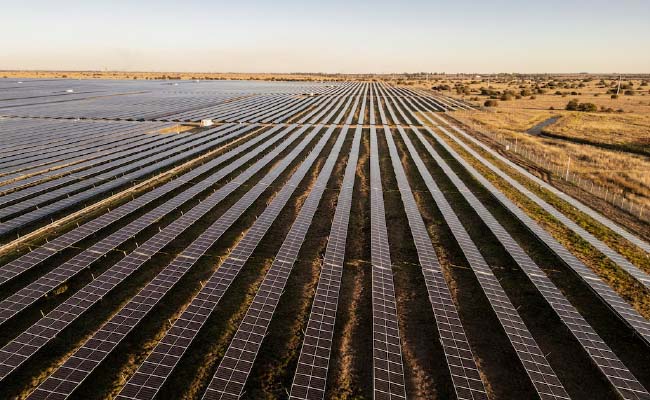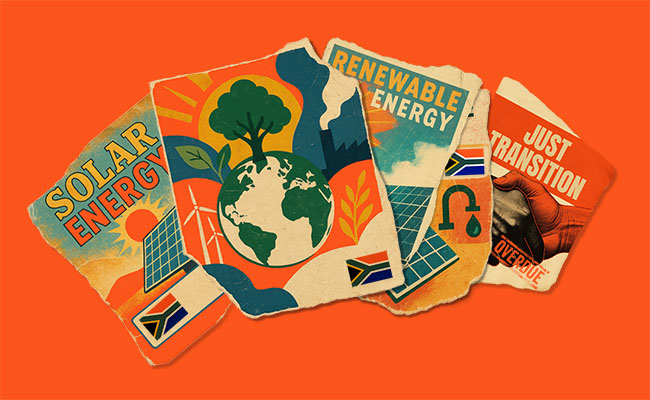“It’s a business, but it’s about purpose,” says Salvador Anglada, the CEO of Optasia, perhaps one of the most exciting prospects to launch on the JSE in years.
Anglada couldn’t have hoped for a better time to list a company premised on using AI to provide credit to an African consumer class, and small businesses that have long complained at being frozen out by the banks. After all, anything that can shoehorn “AI”, even peripherally, into their model is almost assured of a valuation bump.
“Yes, AI is going through a boom, but that has mostly been about generative AI and large language models – and we are not in that space,” Anglada told Currency in an interview this week. “Our proficiency is, we use machine learning to provide credit to those who weren’t able to get it, and we’ve been doing it for 20 years, and doing it profitably.”
That much is evident from Optasia’s prelisting statement, published yesterday, which confirmed that it wants to raise $375m (R6.5bn) in capital, which it plans to use to expand its reach beyond the 38 countries in which it operates, half of which are in Africa.
Optasia, chaired by the respected former banker Michael Jordaan, characterises itself as an “AI-enabled fintech platform” that provides microloans and airtime credit using a bespoke “credit-decisioning algorithm process” using more than 5,000 raw data points, like someone’s spending record. The company’s AI engine is able to draw up a picture of 100,000 unique features, creating a nuanced personal credit record.
In practice, Optasia partners with mobile operators like MTN, Airtel and Vodacom to give people credit to buy airtime, and with banks like Standard Bank to provide microloans to consumers and small businesses. This isn’t small beer either: every day, it processes more than 32-million loan transactions worth $13m. Today, it can boast of about 121-million monthly active users in places as far afield as Pakistan, Uganda, Malaysia, Ghana and South Africa.
But it’s not just a lending company. Optasia’s “purpose”, as Anglada describes it, is to widen financial access to millions of people in countries from Nigeria to the Democratic Republic of Congo who are routinely denied credit. This is about “creating a market that wasn’t there before”, he says.
“Banks in many of these countries haven’t been comfortable with lending to many of the people we service because they couldn’t quantify the risk properly. But we’re doing this right now, without asking for collateral, and if people don’t pay, we don’t blacklist them. We trust our algorithms.”
A presentation a few months ago by Ethos, the majority shareholder of Optasia, outlined the opportunity it hopes to wrangle.
When it comes to airtime, Optasia said there are 3-billion prepaid cellphone users who cannot get “immediate access to top-up opportunities for their mobile phone for multiple reasons [like] delayed income or [because they live in] remote areas with no access to agents”.
And when it came to loans, the limited credit bureau coverage in many of the countries in which it operates meant that lenders weren’t able to properly evaluate whether people were a genuine credit risk.
The result: people can’t access funding, even when they pose no real credit risk.
Optasia’s numbers do suggest most African banks are far too conservative in denying credit. For 2024, it made revenue of $151.2m, with adjusted pre-tax earnings of $75.1m. That’s a margin of about 50%, suggesting that lending to this underserved market is massively profitable.
Anglada says his company has an average default rate of just 1.1% – far below what you’d expect of any bank operating in the unsecured credit market. This speaks to the strength of Optasia’s credit-scoring model, he says.
“That’s actually the point. People pay back what we lend them because they want to build a credit record, and they respond well when we lend them money. But it takes work – if you were a big bank operating in our market, they might have a default rate closer to 8% or 10%,” he says.
Closed listing
Optasia’s listing is a boon for the JSE, which has suffered a deluge of delistings, amid very few new listings. Anglada says a public listing “will help our business and get our story out, letting people know that we’re profitable, with a strong growth profile”.
Growth has indeed been strong. For the six months to June, Optasia made revenue of $117m and adjusted earnings of $54m – 90% better than where it was at the half-year stage in 2024. But with these sorts of figures available, what protects Optasia from a challenger?
Its prelisting statement argues it has a “hard-to-replicate business model”, since there is “no direct competitor offering a similar suite of products” across various regions, including Southeast Asia and Africa. And it has sewn-up deals with 49 partners like Vodacom, MTN and Airtel, and 13 financial institutions, like RMB and Standard Bank.
“The group has enabled financial access for approximately 639-million people since launch by addressing their daily financial needs,” it said.
Of course, another reason why Optasia is listing now is to give Ethos Capital, the private equity company that owns a minority stake, an exit route. But the prelisting statement says it is also to give it capital to “support growth, both organically and through future acquisitions”.
Rather like the Boxer listing last year, Optasia isn’t offering its shares to the public as such, but rather to “selected qualified investors” through “separate private placements”. So as much as it might talk about “democratising finance”, this is not a sentiment which is echoed in its listing.
Still, for those investors likely to count as a “qualified investor”, if Optasia hits the sort of profits it speaks about, the prospect is mouthwatering. It expects revenue and earnings to grow by more than 40% for the next two years, with growth of more than 20% a year over the longer term.
It’s a nice story to tell investors – and Anglada, who is Spanish, says he’s loving it. The 59-year-old has held a number of senior roles in Spain’s telecommunications group Telefonica as well as at e&, the Dubai-based telecommunications company formerly known as Etisalat.
Anglada has only been with the company in South Africa for a few months, but has adapted quickly, partly, he says, because of the clear social problem it seeks to address.
“It’s a fantastic project, because it can really make a difference to people’s lives as well as the GDP in these countries. But for me, it’s also exciting to be taking a company public.”
Sign up to Currency’s weekly newsletters to receive your own bulletin of weekday news and weekend treats. Register here.














How does one become a “qualified investor?”
Hope i become one of the qualified investors